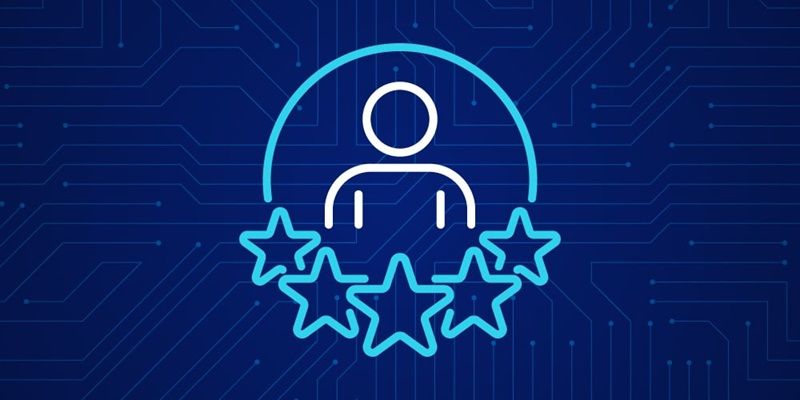- Published
- 29 April 2025
Artificial Intelligence (AI) is one of the most quickly evolving and promising technologies currently in development across multiple industries around the globe. Whilst we are still far from knowing the impact AI will have on the future, developing an understanding of how it might affect certain sectors is a crucial first step.

To get started, it is important to understand the demand for AI skills in the labour market and some of the key skills you need l in the AI sector.
1. Technical knowledge
AI is a technical subject , so mathematical and scientific skills are often desired by employers.
You will need programming expertise in Python, C#, and R, experience in AI-specific vendors and applications, user interface (UI) and user experience (UX); they are easy to learn, and their applications provide a broad scope.
Specifically, a Data Scientist would need in-depth knowledge of SAS, R, and Python coding, experience working on cloud tools like Amazon’s S3, and the ability to understand and interrogate unstructured data.
As part of the University of Leeds distance learning Artificial Intelligence MSc, you will study subjects such as robotics, data mining and text analytics, machine learning and deep learning, which are aligned with market needs to help you develop high-demand skills. For example, you will learn the principal algorithms used in machine learning, how to apply them to a given scenario and how to evaluate their performance.
2. Communication and emotional intelligence
Emotional intelligence is the ability to be aware of, control, and express emotions – and to be aware of the emotions of others. Someone with good emotional intelligence can work well with others and show empathy.
Machines cannot currently replicate humans’ ability to connect with other humans, so it makes sense that those with good emotional intelligence will be in demand in the workplace.
The ability to communicate effectively with other people and share information will be vital. You will have to be confident explaining complex AI concepts to management and business stakeholders who might not possess the same level of technical expertise as you.

3. Critical thinking
Critical and analytical thinking is particularly valuable as we navigate the changing landscape of the workplace and division of labour between humans and machines.
Having strong critical thinking skills enables you to produce innovative solutions to complex problems and helps you weigh up the pros and cons. That is why we teach knowledge representation and reasoning on our Artificial Intelligence MSc. You will learn how to use an automated reasoning software tool to compute inferences from logical representations. You will also be introduced to informal descriptions of complex real-world scenarios and understand the principles of automated reasoning and the power limitations of different representations and inference mechanisms. You will understand what an Ontology is and how it can be used within an information system and be able to create simple ontologies using a software tool.
4. Intellectual curiosity
Intellectual curiosity is about gaining specialist knowledge, such as what objects are composed of, the underlying mechanisms of systems, mathematical relationships, languages, social norms, and history.
Working in AI, you will need to have this curiosity to work outside of your comfort zone, think outside of the box, and to propose solutions that push the boundaries As part of the Artificial Intelligence MSc, you will complete a large project at the end of the course. This will allow you to apply your academic study, techniques and knowledge. You will address a work-related challenge, encouraging you to explore, analyse, and innovate upon existing critical theory and practice.
5. Decision making
We are facing a technological revolution: computers, in a lot of scenarios, are now capable of processing information better than the human brain.
However, it is up to humans to make business decisions in organisations, considering the implications of the decision and the people within the organisation. Even as AI evolves to make low level decisions, humans will still take responsibility for higher level complex decisions.
Our Ethics of Artificial Intelligence module will teach you the analytical and theoretical tools to engage with the ethical questions that this raises, such as: “Who is morally responsible when an automated system makes a mistake?” You will apply the academic skills learned in the module to real-life issues and case studies in AI.
Studying AI for your future
Our innovative online MSc course is designed and taught by computer scientists specifically for professionals who recognise the importance of AI to their sector.
Our School of Computing is ranked 9th for Computer Science in the UK (The Complete University Guide 2021) and is one of a handful of elite institutions to partner with the Alan Turing Institute – the national institute for data science and artificial intelligence.
Over 85% of our research was classified as “world leading” or “internationally excellent” in the latest Research Excellence Framework; and 100% was deemed to have either “outstanding” or “very considerable” impact in the same Framework.
This course is designed specifically for professionals who are:
- Looking to reskill to enter the AI developer profession.
- Looking to upskill to develop, manage, or plan AI solutions within their current organisation.
- With solid mathematical or statistical knowledge and a minimum of calculus, algebra, and linear algebra fundamentals.
- Seeking a route to higher level study to develop academic prowess further within this field.
- From a wide range of professional careers including Professor, Politician, Senior Manager or CEO and Sales and Marketing.
Flexible online learning
The course is delivered 100% online for you to learn whenever suits you, wherever you are in the world. This allows you to fit your study flexibly around your personal responsibilities and work commitments meaning you can continue in your current job role and see first-hand the impact that you are making in the workplace and in your online course.
You can also grow your global network as you collaborate with professionals living and working across the world, through live seminars, discussion forums, group projects and more. Networking with people experiencing similar challenges across a variety of industries across the globe enriches your experience and gives you a deeper understanding of AI in your sector and others too.
Related artificial intelligence blogs that you may be interested in